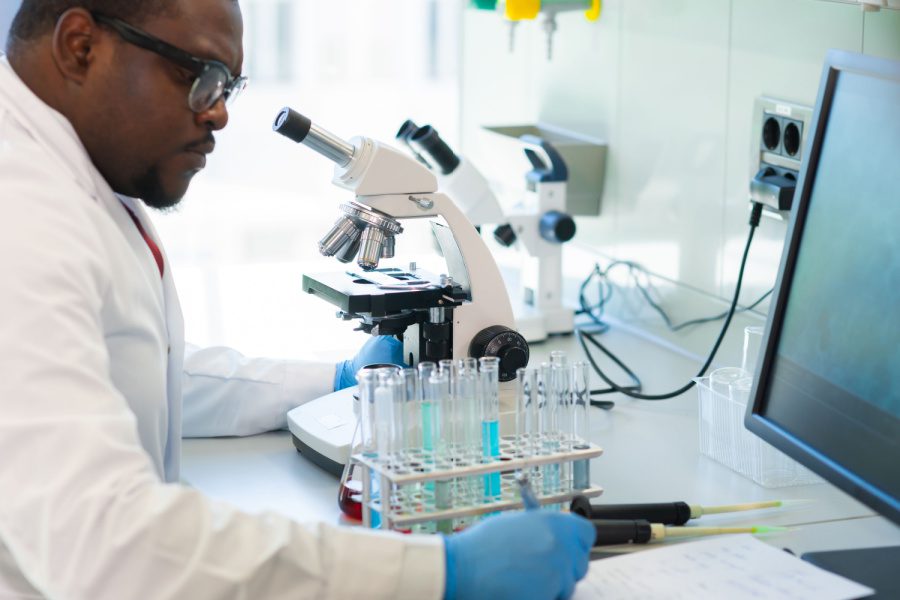Three potential new treatments for celiac disease have updates at DDW

By Amy Ratner, director of scientific affairs
Three companies developing celiac disease drugs gave updates on their treatments recently at Digestive Disease Week (DDW). DDW is the largest international annual conference for physicians, researchers and academics in the fields of gastroenterology, hepatology, endoscopy and gastrointestinal surgery.
KAN-101, being tested in clinical trials by Anokion, is designed to restore normal immune tolerance of gluten as a way of treating celiac disease. New data presented at DDW further establishes that KAN-101 induces immune tolerance to gluten, Deborah Geraghty, PhD, Anokion chief executive officer said in a press release.
“KAN-101 could be a game changer for patients, with durable treatment effects observed following administration,” she said.
The data was collected from a Phase 1 trial in which some study participants were given multiple doses of the drug. Celiac disease patients in this group received one of three dose amounts of the drug or a placebo on three separate days over the course of a week. About a week later, they were given a three-day gluten challenge.
Joseph Murray, MD, of the Mayo Clinic and lead investigator in the ACeD (Assessment of KAN-101 in Celiac Disease) trial, presented findings about the movement of KAN-101 through the body and the body’s biological response to the drug. Researchers looked at the way in which KAN-101 was absorbed, distributed, localized in tissue and excreted.
Kan-101 was cleared from circulation in the blood with about six hours across of the dose amounts. The effects of the drug were observed by researchers for up to three weeks after it was given to study participants.
KAN-101 followed by a gluten challenge led to dose-dependent reduction of gluten-induced cytokines, including Interleukin 2 (IL-2), an effect not seen in the placebo group, the study found. IL-2 is a cytokine signaling molecule in the immune system. Previous research has shown a correlation between IL-2 and symptoms in celiac disease patients, including nausea and vomiting.
Cytokines are small, secreted proteins released by cells that have a specific effect on the interactions and communications between cells. When someone has celiac disease, their immune system incorrectly reads gluten proteins as invaders. This miscue triggers T-cells, which function as the body’s disease fighting soldiers, to release cytokines and attack. This attack causes inflammation and tissue destruction.
Kan-101 targets specific receptors on the liver, setting off a cascade of events that re-teach the immune system not to respond to gluten. Unlike broad immunosuppressants, KAN-101 targets only the part of the immune system that drives celiac disease. Anokion is a clinical stage bio-tech company focused on improving the treatment and outcomes of autoimmune disease.
This is the second year Anokion has presented results at DDW. The company launched a second clinical trial in late 2022 and plans to move into Phase 2 study this year.
DONQ52, a drug being developed by Chugai Pharmaceuticals to treat celiac disease by blocking the immune responses that occur, was effective in blocking gluten-specific T-cells, according to early study results presented at DDW.
Early results provide proof-of-concept that DONQ52 can inhibit pathogenic gluten-specific T-cells in celiac disease patients, said Melinda Hardy, PhD, of The Walter and Eliza Hall Institute of Medical Research. Chugai, a Japanese drug and biotech company, is currently recruiting celiac disease patients with the HLADQ 2.5 gene for a Phase 1 clinical trial.
Interim results from a Phase 1 trial of CALY-002, a drug designed to interrupt immune reactions in celiac disease, showed that in healthy volunteers the drug is well tolerated and has a good profile as it moves through the body.
Calypso Biotech, the company developing the drug, is completing recruitment for a clinical trial to study the safety and effectiveness of the drug in celiac disease and eosinophilic esophagitis (EOE) patients.
CALY-002 is an anti-Interleukin-15 (IL-15) monoclonal antibody. Celiac disease and EOE both have significant unmet need where IL-15 plays a role, according to the company. IL-15 is a cytokine that plays a role in celiac disease inflammatory immune response.
Monoclonal antibodies are man-made proteins that can bind to substances in the body. In autoimmune diseases, such as celiac disease, the antibodies are designed to target cytokine proteins that contribute to inflammation.
Opt-in to stay up-to-date on the latest news.
Yes, I want to advance research No, I'd prefer not to